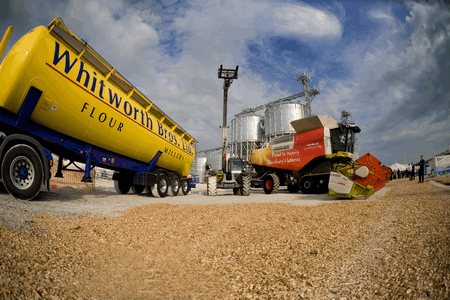Wheat varieties: Oilseed rape

It’s hard to do better than Castille in the south, despite the arrival of two good new varieties on the Recommended List this year, says Simon Kightley of NIAB.
“Castille has been so reliable,” he says. “I find it difficult to come up with a better option and for those growers who like the variety the advice is to keep growing it. But it’s always worth considering moving on.”
Catana, the top yielding conventional variety added for 2008, doesn’t perform any better than Castille in the south, he notes. “It’s taller, weaker and not as good for stem canker. So it isn’t an obvious replacement for Castille.”
The other addition for 2008 is Flash, a hybrid variety which is 4% higher yielding than the rest. “It looks very promising, but it’s another variety which has performed better in the north.
“In the south, it’s only done slightly better than Castille. And there hasn’t been tremendous enthusiasm for the hybrids, so it doesn’t look as though it will knock Castille off course.”
Flash is also a later maturing type, which can help to spread workload where a large acreage of oilseed rape is being grown, he adds.
Other choices for the south include Es Astrid, Excel, Lioness, NK Bravour and Expert, says Mr Kightley.

“Es Astrid is a good bet for heavy land and it has a good rating for stem canker. Excel, another hybrid, has a 9 for stem canker, which is useful where spraying has to be prioritised.”
Lioness has slipped in performance terms, especially on lighter soils in the south where manganese deficiency symptoms appeared over the winter. “It can underperform, but it stands well. Only go on growing it if you like it.”
NK Bravour and Expert are alternative choices, suggests Mr Kightley. “NK Bravour is a good general purpose variety, while Expert is taller and later maturing, but has very good lodging resistance.”
Looking ahead, he can see a few candidates which might be of interest. “If you like the hybrid offering, then Dimension will appeal. It must prove itself this year, after such good results in 2007.”
Epure is the highest yielding conventional candidate, with good light leaf spot resistance and later maturity, “Then there’s Es Alienor, which is short with good disease ratings, but it may not be stiff stemmed enough for some growers.”

In the north, light leaf spot resistance is the most important consideration when choosing an oilseed rape variety, says David Waite of Frontier.
“Light leaf spot occurs throughout Scotland and the north of England, down as far as the Humber,” he says.
This is where varieties such as Catana, Canti CS and Temple might have a place, although there’s also been greater uptake of the hybrids in this area, he says.
“Excalibur has done well on farm and growers who have got on with it will be tempted by Flash, which is the highest yielding variety on the Recommended List. It looks good and has given its best results in the north.”
One of the hybrid candidates, Cuillin, has a 9 for light leaf spot resistance, points out Mr Waite. “That’s bound to attract a following.”
In Aberdeenshire, there’s a need for Mendel, the only variety with resistance to club root, he adds.
The SAC Recommended List for 2008 has Lioness, Excalibur and NK Grace as the top three varieties for gross output. But last year’s additions, Catana, Flash, Temple and Canti CS have all done better and their results from this harvest are eagerly awaited.
“There’s far more for growers in the north to be excited about,” points out Mr Kightley. “We’re seeing some very good performances from some of these varieties, with disease ratings to match.”
HOLL varieties
Demand for healthier frying oils, with greater stability and taste benefits, has created an increasing market for High Oleic, Low Linolenic (HOLL) varieties.
The intention for 2008/09 is to double their market share from 4% to 8%, with contracts being available with 20% premiums, worth up to £60/t.
There are two main winter varieties, both from Monsanto’s Dekalb programme. The first of these is Splendor, which still has a slight yield disadvantage to other oilseed rape varieties.
The latest offering, V141OL, has closed the yield gap and has given good results on farm.
The key requirement of any HOLL contract is the maximum amount of linolenic acid, which should not exceed 4%.

